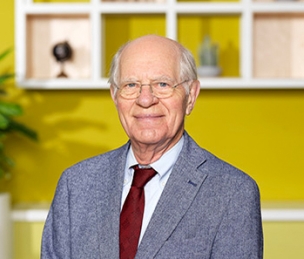Displaying 1 - 18 of 18
-
Klein, W., & Levelt, W. J. M. (1978). Sprache und Kontext. Naturwissenschaften, 65, 328-335. doi:10.1007/BF00368373.
Abstract
Recently, the Max Planck Society founded a new Project group for Psycholinguistics. This article reviews some of the kernel issues of the group's research program. The central concern is with the context dependency of the speaker's linguistic behavior. The process of linguistically formulating depends not only on what the speaker wants to express, but also on what has been said previously (linguistic context), and on the physical and social situation (nonlinguistic context). Special attention is paid to two context-dependent phenomena. -
Levelt, W. J. M., Sinclair, A., & Jarvella, R. J. (1978). Causes and functions of linguistic awareness in language acquisition: Some introductory remarks. In A. Sinclair, R. Jarvella, & W. J. M. Levelt (
Eds. ), The child's conception of language (pp. 1-14). Heidelberg: Springer. -
Levelt, W. J. M. (1978). A survey of studies in sentence perception: 1970-1976. In W. J. M. Levelt, & G. Flores d'Arcais (
Eds. ), Studies in the perception of language (pp. 1-74). New York: Wiley. -
Levelt, W. J. M., & Schreuder, R. (1978). Psychologische theorieën over het lexicon. Forum der Letteren, 19, 40-58.
-
Levelt, W. J. M. (1978). Skill theory and language teaching. Studies in Second Language Acquisition, 1(1), 53-70. doi:10.1017/S0272263100000711.
-
Levelt, W. J. M., Schreuder, R., & Hoenkamp, E. (1978). Structure and use of verbs of motion. In R. N. Campbell, & P. T. Smith (
Eds. ), Recent advances in the psychology of language: Vol 2. Formal and experimental approaches (pp. 137-162). New York: Plenum Press. -
Levelt, W. J. M., & Flores d'Arcais, G. B. (
Eds. ). (1978). Studies in the perception of language. London: Wiley. -
Noordman, L. G. M., & Levelt, W. J. M. (1978). The noun-verb intersection method for the study of word meanings. Methodology and Science, 11, 86-113.
-
Sinclair, A., Jarvella, R. J., & Levelt, W. J. M. (
Eds. ). (1978). The child's conception of language. Berlin: Springer. -
Levelt, W. J. M. (1974). Formal grammars in linguistics and psycholinguistics: Vol.III, Psycholinguistic applications. The Hague: Mouton.
-
Levelt, W. J. M. (1974). Formal grammars in linguistics and psycholinguistics: Vol. I, An introduction to the theory of formal languages and automata. The Hague: Mouton Publishers.
-
Levelt, W. J. M. (1974). Formal grammars in linguistics and psycholinguistics: Vol.II, Applications in linguistic theory. The Hague: Mouton.
-
Levelt, W. J. M. (1974). J.B. Carroll & R. Freedle (eds.), Language comprehension and the acquisition of knowledge [Book review]. The Quarterly journal of experimental psychology, 26(2), 325-326. doi:10.1080/14640747408400419.
-
Levelt, W. J. M. (1974). Taalpsychologie: Van taalkunde naar psychologie. In Herstal-Conferentie.
-
De Weert, C., & Levelt, W. J. M. (1974). Binocular brightness combinations: Additive and nonadditive aspects. Perception and Psychophysics, 15, 551-562.
-
Levelt, W. J. M. (1973). Formele grammatica's in linguistiek en taalpsychologie (Vols. I-III). Deventer: Van Loghem Slaterus.
-
Levelt, W. J. M. (1973). Recente ontwikkelingen in de taalpsychologie. Forum der Letteren, 14(4), 235-254.
-
Levelt, W. J. M., & Bonarius, M. (1973). Suffixes as deep structure clues. Methodology and Science, 6(1), 7-37.
Abstract
Recent work on sentence recognition suggests that listeners use their knowledge of the language to directly infer deep structure syntactic relations from surface structure markers. Suffixes may be such clues, especially in agglutinative languages. A cross-language (Dutch-Finnish) experiment is reported, designed to investigate whether the suffix structure of Finnish words (as opposed to suffixless Dutch words) can facilitate prompted recall of sentences in case these suffixes differentiate between possible deep structures. The experiment, in which 80 subjects recall sentences at the occasion of prompt words, gives only slight confirmatory evidence. Meanwhile, another prompted recall effect (Blumenthal's) could not be replicated.

Share this page